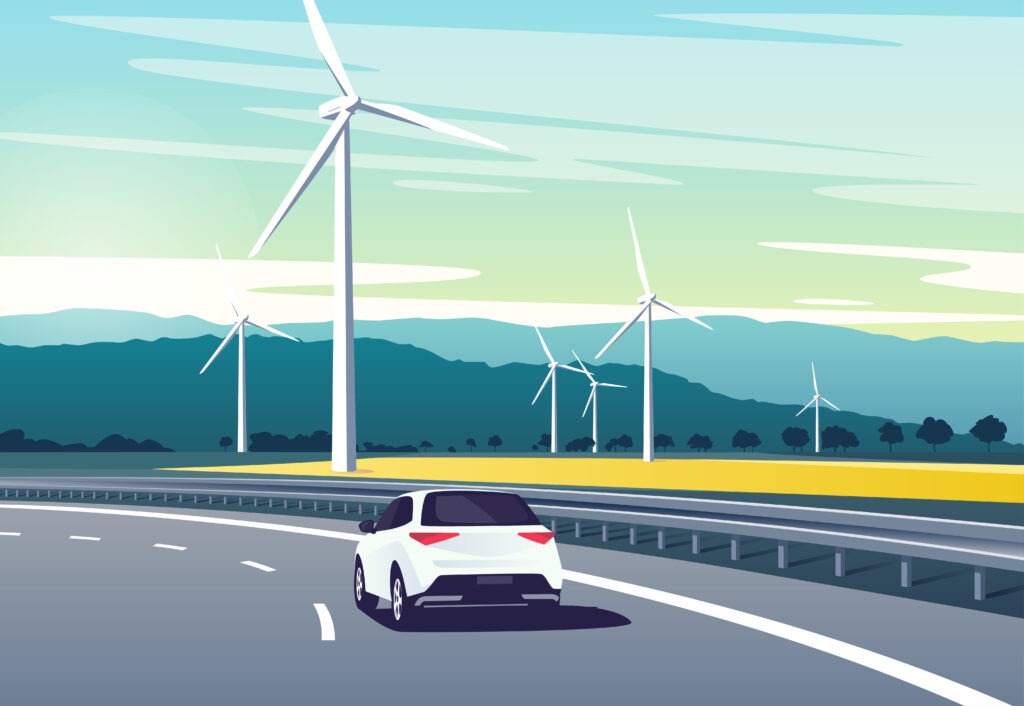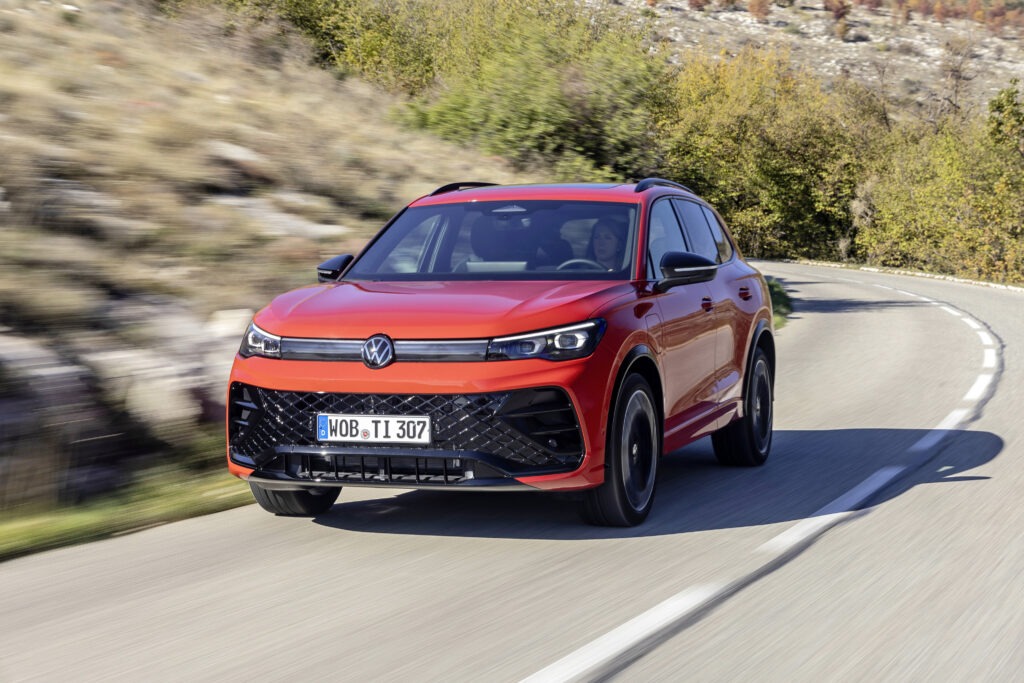German new-car market grows in June despite EV slump
09 July 2024

New-car registrations increased in Germany last month. However, growth was not enjoyed by all powertrains, as battery-electric vehicles (BEVs) and plug-in hybrids (PHEVs) both saw declines. Autovista24 editor Tom Geggus analyses the latest figures.
New-car deliveries in Germany grew by 6.1% year on year in June, according to data from the Kraftfahrt-Bundesamt (KBA). This meant there were 297,329 units registered in the month.
This pushed the year-to-date total to 1,471,641 units, up 5.4% compared to the first six months of 2023. While this growth will come as a relief following May’s decline, there are complicating factors which confirm changing market trends.
In comparison, June 2023 recorded year-on-year growth of 25%, while the first six months of the year were up 13%. It is worth recognising that this period was set against a weaker 2022. At this point the market was in the middle of a supply crisis, making for a less balanced result.
More important is how different powertrains performed a year ago. BEVs were driving the market with deliveries up by 64.4%. Both petrol and diesel recorded more modest increases of 19.8% and 10.3% respectively. PHEVs slumped by 39.2% while combined full (HEV) and mild hybrid (MHEV) deliveries rose by 59.1%.
Bumpy road for new BEVs
Fast forward a year and some powertrains have had a reversal in fortunes. Continuing a trend observed throughout 2024, June saw BEVs struggle as demand dipped. With 43,412 registrations, deliveries of all-electric models fell by 18.1% year on year. This resulted in a market share of 14.6%, down from the 18.9% seen in the same month last year.
After posting only a marginal gain in May, PHEVs recorded a decline last month. Registrations dropped by 3.4% meaning the powertrain’s market share reached 5.2%, down 0.5 percentage points (pp) on June 2023.
Combining PHEV and BEV figures, electric vehicle (EV) deliveries fell by 14.7% in June to 58,803 units. Plug-in powertrains made up 19.8% of the market, down 4.8pp on June 2023. Last year saw the withdrawal of incentives on business and private purchases of both PHEVs and BEVs. This has affected demand as price remains a major factor in the purchase of plug-in models.
Hybrid turnaround
Made up of HEVs and MHEVs, the hybrid market saw registrations grow by 16.5% last month to 72,579 units. This was a welcome change of direction on the 0.7% decline recorded in May. The powertrain’s market share climbed from 22.2% in June 2023 and 24.3% in May 2024 to reach 24.4% last month.
Meanwhile, deliveries of petrol-powered cars increased by 12.2% last month, according to Autovista24 calculations. This meant the drivetrain claimed 37.6% of the market with 111,796 units. This was up 2.1pp on June 2023, with the fuel type reclaiming market share as EV demand drops.
The same is true of diesel-powered cars, of which 52,627 units took to the country’s roads in the month. This was up 12.3% year on year, with the technology making up 17.7% of the market, up 1pp compared to June 2023. This is against the trend seen in other major European markets, where diesel often struggles.
Combining both petrol and diesel figures highlights year-on-year growth of 12.2%. The pair accounted for over half of the market at 55.3%, up 3pp on 12 months ago. This growth was also reflected in rising CO2 levels according to the KBA. Average emissions climbed by 3.8% year on year to 119.5g/km.
‘The growth in new car registrations continues to be driven by petrol and diesel vehicles,’ said ZDK vice president Thomas Peckruhn. ‘The majority of customers are opting for these vehicles because the uncertainty and scepticism regarding e-mobility continues.
‘There is still a lack of inexpensive EVs, which are not due to come onto the market until next year at the earliest. In this respect, it is to be feared that there will probably not be a turnaround in BEV registrations this year,’ he added.
Special effect
The success of certain powertrains is the result of a ‘special effect’, the Verband der Automobilindustrie (VDA) said. The body pointed to a new EU type approval regulation which came into force on 7 July this year.
The Vehicle General Safety Regulation requires a range of advanced driver-assistance systems (ADAS). All vehicles must now be fitted with intelligent speed assistance, reversing detection technology, an attention warning system, event data recorders as well as an emergency stop signal. Cars and vans must support additional features such as lane keeping and automated braking.
The VDA explained that with this new level of compulsory technology, carmakers will have brought some registrations forward. This will have allowed models not featuring the technology to navigate the regulation, particularly benefitting the likes of petrol and diesel models.
‘Speed assistance, lane keeping and automated braking systems – our vehicles are increasingly automated,’ said EU Commissioner Thierry Breton, responsible for the internal market.
‘With the new vehicle safety legislation applying from today, Europe is making sure that this technology improves our citizens’ daily life, and that the automotive industry has a predictable and safe framework to continue rolling out innovative technology solutions and maintain its global competitiveness.’
Anita Wölfl, a specialist at the ifo Center for Industrial Organization and New Technologies, added: ‘Digitalisation, autonomous driving, electromobility – the transformation of the German automotive industry is a huge task for manufacturers and in particular for suppliers.
‘In addition to new competitors and greater software intensity, customer requirements and product lifecycles are changing. Added to this is the current uncertainty caused by the dispute between the EU and China over the issue of punitive tariffs,’ she added.
Problems with provisional tariffs
Provisional tariffs on BEVs made in Chain were recently confirmed by the European Commission. Looking to protect local carmakers, these tariffs have halted hopes that more affordable imports could bolster the German new-car market.
German automotive bodies raised concerns of a trade conflict and emphasised the need for free and fair practices. The VDA called for cooperation between the EU and China to find a more constructive solution.
‘The countervailing duties now provisionally imposed by the EU will not solve the challenges facing the European and German automotive industry. On the contrary, the purpose of countervailing duties intended by the EU Commission would quickly have a negative impact in the event of a trade conflict,’ said VDA president Hildegard Müller.
The ZDK’s Peckruhn said the tariffs sent the ‘wrong signal’ in the ramp-up of electromobility. ‘This will make the electric vehicles available to consumers significantly more expensive, especially as the competitive pressure on European manufacturers is decreasing,’ he said.
‘This will further worsen the already cautious purchasing mood, because since the end of the environmental bonus, registration numbers for electric vehicles have fallen sharply for the sixth month in a row.’
With tariffs distorting competition, Peckruhn also recognised the uncomfortable position of dealers who have already invested in a Chinese brand. ‘In addition, we see a risk that the likelihood of a Chinese counter-reaction is very high. This would affect all exports of vehicles not produced in China and would weaken Germany as a business location and the manufacturers and suppliers based here.’



